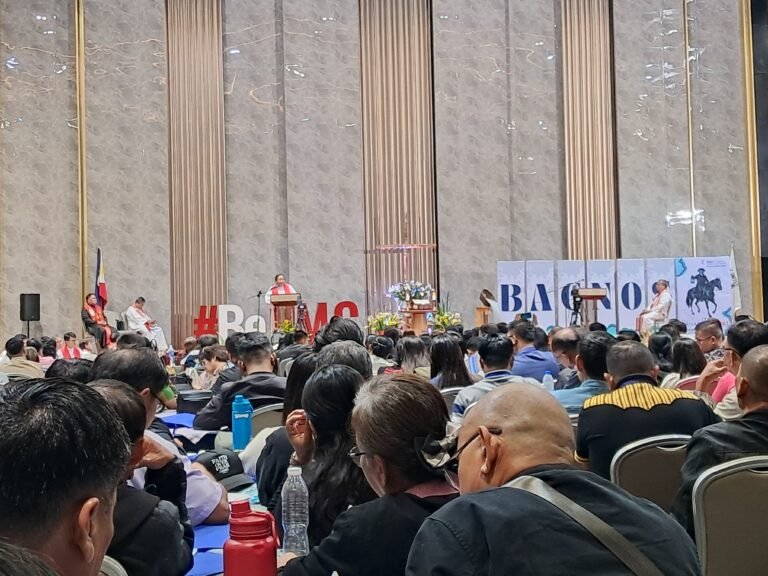
Photo by Ron Lach on <a href="https://www.pexels.com/photo/mental-health-problems-written-on-cardboard-boxes-9169326/" rel="nofollow">Pexels.com</a>
The news update about the billion peso corruption in the country is quite frustrating. In general, I could say that Filipinos are betrayed by the people we believe could help us rise from poverty. Hence, I am reflecting, why did these leaders betrayed us? What move them to become that evil? So, I dig deep to see the story of Judaa and now sharing with you what I learned.
In the Gospel accounts, one of the most chilling moments before the crucifixion of Jesus is when Satan entered into Judas Iscariot. Luke 22:3 records: “Then Satan entered Judas, called Iscariot, one of the Twelve.” This single verse carries a heavy weight—how could a man who walked with Jesus for three years, saw miracles with his own eyes, and heard the very words of life from the Messiah Himself, end up becoming the tool of Satan’s betrayal?
The Bible gives us clues. Judas had a weakness—a spiritual opening—that allowed Satan’s influence to seep in. John 12:6 reveals something striking: “He did not say this because he cared about the poor but because he was a thief; as keeper of the money bag, he used to help himself to what was put into it.” Judas’ heart was already compromised by greed before the night of betrayal. His love for money became the “portal” through which Satan entered.
And that portal—greed—is not just a biblical relic. It’s alive today, manifesting in politics, business, and even ministry. If Judas’ betrayal shows us anything, it’s that the temptation of money can lead to devastating consequences, not only for individuals but for entire communities and nations.
The Spiritual Dynamics of Judas’ Betrayal
Satan’s entry into Judas wasn’t a random possession. Scripture doesn’t depict Satan forcibly overpowering Judas. Instead, Judas had already been walking down a path that made him vulnerable.
Sin often begins subtly. Judas may have started dipping into the money bag with the thought, “It’s just a little—no one will notice.” Over time, his conscience dulled. He learned to justify his actions. When the chief priests offered him thirty pieces of silver to betray Jesus (Matthew 26:14–15), it wasn’t an unthinkable leap—it was simply the next step in the trajectory he had already set.
This is why Paul warns in 1 Timothy 6:10, “For the love of money is a root of all kinds of evil. Some people, eager for money, have wandered from the faith and pierced themselves with many griefs.” The love of money doesn’t just tempt; it blinds, deceives, and slowly turns the heart away from God.
What Was Judas’ “Portal” for Satan?
In spiritual terms, an “opening portal” is an unguarded area in our lives where temptation can enter unchecked. For Judas, that portal was greed—specifically, his role as treasurer for the disciples and his willingness to exploit it.
He had proximity to Jesus but lacked intimacy with Him. He had access to truth but preferred self-interest. This mixture of opportunity and moral compromise created the perfect environment for Satan’s influence.
Think of it like leaving your house door wide open in the middle of the night. The enemy doesn’t have to break in—you’ve invited danger by negligence. Judas’ repeated small compromises left the door wide open.
The Parallel to Modern Politics
If we examine our current world, we see the Judas pattern repeated in political corruption. Many politicians start with good intentions—campaigning on promises to serve the people, uphold justice, and bring change. But once in power, they gain access to wealth, influence, and unchecked resources.
And just as Judas managed the disciples’ money bag, politicians oversee public funds. The temptation is strong. At first, it might be “just a little extra” here and there—an unreported allowance, a padded expense account, a small bribe justified as “political necessity.” Over time, these small moral lapses dull the conscience until corruption becomes a way of life.
Satan doesn’t need to send a demon squad for a hostile takeover of a politician’s soul. All he needs is an open portal—greed, pride, or lust—and the rest follows naturally. When public officials choose personal gain over public service, the damage isn’t just financial; it erodes the moral fabric of society, breeding distrust and cynicism.
Why Money Is Such a Powerful Temptation
Money is not inherently evil; it is a tool. But money promises security, influence, and pleasure—things that can easily compete with God for our loyalty. When love of money takes root, it distorts values and priorities.
In Judas’ case, thirty pieces of silver was enough to trade away loyalty to the Son of God. In political corruption today, the amounts are far greater, but the heart issue is the same: valuing wealth over righteousness.
The tragedy is that the payoff never satisfies. Judas realized too late what he had done, returning the silver and declaring, “I have sinned, for I have betrayed innocent blood” (Matthew 27:4). Money can buy comfort, but it cannot buy back a clean conscience or restore integrity once lost.
Guarding Against the Portal of Greed
If Judas’ story warns us of the danger of greed, it also offers us a call to vigilance. How do we guard against this portal in our own lives?
- Be honest about your weaknesses. Judas never confronted his love of money. Instead, he concealed it. Bringing our weaknesses into the light through confession and accountability closes the door to Satan’s schemes.
- Practice stewardship, not ownership. Everything we have belongs to God. When we see money as a trust, not a personal possession, we handle it with care.
- Be content with what you have. Hebrews 13:5 says, “Keep your lives free from the love of money and be content with what you have, because God has said, ‘Never will I leave you; never will I forsake you.’” Contentment is the antidote to greed.
- Stay close to Jesus. Judas walked with Jesus physically but not spiritually. Staying close to Christ in prayer and obedience keeps our hearts aligned with His.
A Challenge to Leaders and Citizens
For leaders—whether in politics, business, or ministry—the lesson is clear: the greater your access to resources, the more intentional you must be in guarding your integrity. Transparency, accountability, and humility are not optional; they are lifelines.
For citizens, the call is to hold leaders accountable, not just at election time but continually. Corruption thrives when people remain silent. Like the prophets of old, we are called to speak truth to power and demand righteousness in governance.
The Cost of Leaving the Portal Open
Judas’ betrayal set into motion the events that led to the crucifixion. While this fulfilled God’s sovereign plan for salvation, it did not absolve Judas of responsibility. He became a tragic example of how unchecked sin can destroy a life.
In modern times, when politicians fall into corruption, the cost is immense—misused funds that could have fed the poor, built schools, improved healthcare, or created jobs. Worse, it sets a precedent for future leaders that personal enrichment is an acceptable perk of office.
Closing the Portal Today
Satan entered Judas not because Judas was simply in the wrong place at the wrong time, but because his heart was already inclined toward betrayal through greed. In the same way, the corruption we see in society today often stems from hearts already compromised by the love of money long before the “big” acts of betrayal take place.
The only way to close the portal is to deal with the heart issue—repentance, humility, and a renewed commitment to serve others above self. Whether we are leaders in government, in business, in church, or simply in our families, we all face the temptation to put self-interest above God’s will. The story of Judas is a sobering reminder: unchecked greed can make us instruments of darkness, but a surrendered heart can make us vessels of light.
Final Reflection:
Judas’ thirty pieces of silver seem like a paltry sum compared to the weight of his betrayal. Yet for him, it was enough. What’s your “thirty pieces”? Is there an open portal in your life where the enemy could enter? Today is the day to close it—before the cost becomes too high to bear.
About The Author
Discover more from COMMUNICATIONS
Subscribe to get the latest posts sent to your email.







